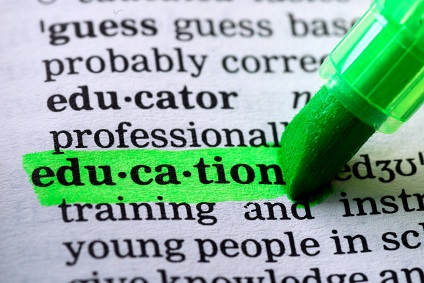Which means and Types of Education:
Training is a steady interaction that gets positive changes to human existence and conduct.Types of education we can likewise characterize schooling as “a cycle of procuring information through examination or giving the information via directions or some other reasonable system”.
What is an instruction?
Instruction gets a characteristic and enduring change in a person’s thinking and capacity to accomplish the designated objective. It works with us to examine our own contemplations and considerations and prepares it to communicate it in different shapes.
Training is the primary concern that urges us to recognize good and bad on the grounds that without instruction,Types of education we can’t do what we need or we can’t accomplish our objective.
Directly, we can say, “schooling is the entry to advance”. It is furthermore the way to our destiny as accomplishments must be refined when people have data, aptitudes, and temper. Thusly, schooling takes after a medium through which we can connect with different people and offer our considerations.
To handle issues and do creativity we first need to acquire capability for certain fundamental capacities. We require learning and capacities to twist up progressively creative. So training is essentially learning of capacities and thoughts that can make us progressively creative and issue solvers.Types of education schooling is to get the ability to create and deal with issues to accomplish their legitimate intentions.
Instruction additionally implies assisting individuals with figuring out how to get things done and empowering them to ponder what they realize.
Educators must train approaches to discover and utilize data. Through instruction, the information on the society, country, and of the world is given from one age to another.
In vote-based systems, through schooling, kids and grown-ups should figure out how to be dynamic and successful residents.
More explicit, instruction helps and guides people to change starting with one class then onto the next. Enabled people, social orders, nations by training are taking an edge over people remain on the base pyramid of development.
Sorts of Education
Schooling goes past what takes place inside the four dividers of the homeroom. Types of education a youngster gets the training from his encounters outside the school just as from those inside based on these variables. There are three primary kinds of training, specifically, Formal, Informal, and Non-formal. Every one of these sorts is examined underneath.
Formal Education
Formal instruction or formal adapting typically happens in the premises of the school, where an individual might learn fundamental, scholarly, or exchange abilities. Little kids regularly go to a nursery or kindergarten however frequently formal training starts in grade school and proceeds with the auxiliary school.
Post-optional training (or advanced education) is typically at a school or college which might concede a scholastic degree. It is related to a particular or stage and is given under a specific arrangement of rules and guidelines.
The conventional training is given by uncommonly qualified instructors who should be proficient in the craft of guidance. It likewise notices severe discipline. The understudy and the educator both know about current realities and connect with themselves during the time spent schooling.
Instances of Formal Education
Learning in a study hall
School reviewing/affirmation, school, and college degrees
Arranged instruction of various subjects having an appropriate prospectus gained by going to the foundation.
Qualities of formal training
Formal schooling is organized progressively.
It is arranged and purposeful.
Planned charges are paid routinely.
It has an ordered reviewing framework.
It has a schedule and is subject-situated. The schedule must be covered within a particular time span.
The kid is educated by the educators
Benefits of Formal instruction:
A coordinated instructive model and cutting-edge course substance.
Understudies get information from prepared and proficient educators.
Organized and methodical learning measures.
Halfway and last appraisals are guaranteed to propel understudies to the following learning stage.
Establishments are authoritatively and actually coordinated.
Prompts an officially perceived authentication.
Simple admittance to occupations.
Weaknesses of Formal schooling:
Once in a while, splendid understudies are exhausted because of the huge delay for the expiry of the scholastic meeting to elevate to the following stage
The possibility of negative propensities’ reception might be disturbing because of the presence of both great and awful understudies in the homeroom
Wastage of time as some apathetic understudies might neglect to adapt appropriately despite inspiration by the expert mentors.
Types of education some amateurish and non-standard instruction frameworks might cause the wastage of time and cash of the understudies which prompts the failure from formal training and contend them to go for non-formal schooling.
Expensive and unbending schooling in contrast with different types of learning
Casual Education
Casual training might be a parent showing a youngster how to set up a dinner or ride a bike.
Individuals can likewise get casual training by perusing many books from a library or instructive sites.
Casual training is the point at which you are not concentrating in a school and don’t utilize a specific learning technique. In this sort of schooling, cognizant endeavors are not included. It is neither pre-arranged nor conscious. It could be learned at some commercial center, lodging, or at home.
In contrast to formal instruction, casual training isn’t granted by an organization like a school or school. Casual instruction isn’t offered by any decent schedule. There is no set educational plan required. Casual schooling comprises encounters and really living in the family or local area.
Instances of Informal Education
Showing the kid a few essentials like numeric characters.
Somebody learning his/her native language
An unconstrained sort of learning, “if an individual remaining in a bank finds out about the opening and keeping up with the record at the bank from somebody.”
Attributes of Informal Education
It is autonomous of limit dividers.
It has no unequivocal prospectus.
It isn’t pre-arranged and has no schedule.
No charges are needed as we get casual schooling through day-by-day experience and by learning new things.
It is a long-lasting cycle in a characteristic manner.
The endorsements/degrees are not included and one has no pressure for learning new things.
You can get from any source like media, educational encounters, companions, family, and so forth
Benefits of Informal Education
All the more normally learning measure as you can learn at any place and whenever from your everyday experience.
It includes exercises like an individual and individual exploration on a subject of interest for themselves by using books, libraries, web-based media, web or getting help from casual coaches.
Uses an assortment of procedures.
No particular time interval.
Less exorbitant and time-effective learning measure.
No compelling reason to recruit specialists as the greater part of the experts might impart their valuable information to understudies/public through online media and the web.
Students can be gotten the imperative data from books, TV, radio or discussions with their companions/relatives.
Detriments of Informal Education
Data gained from the web, online media, TV, radio or discussions with companions/relatives might prompt the disinformation.
Used methods may not be proper.
No appropriate timetable/time frame.
Eccentric outcomes which basically the wastage of time.
Absence of trust in the student.
Nonappearance of discipline, disposition, and beneficial routines.
Non-formal Education
Non-formal instruction incorporates grown-up fundamental training, grown-up proficiency training, or school equivalency planning.
In nonformal instruction, somebody (who isn’t in school) can learn proficiency, other essential abilities, or occupation abilities.
Homeschooling, individualized guidance (like customized learning), distance learning, and PC helped guidance are different potential outcomes.
Non-formal training is conferred intentionally and purposely and efficiently executed. It ought to be coordinated for a homogeneous gathering. Non-formal, schooling ought to be customized to serve the requirements of the distinguished gathering. This will require adaptability in the plan of the educational program and the plan of assessment.
Instances of Non-formal Education
Cub Scouts and Girls Guides foster a few games programs, for example, swimming goes under nonformal schooling.
Work out regimes.
Local area-based grown-up instruction courses.
Free courses for grown-up instruction created by some associations.
Attributes of Non-formal Education
The nonformal instruction is arranged and happens separated from the educational system.
The schedule and prospectus can be movable.
In contrast to hypothetical proper schooling, it is commonsense and professional training.
Nonformal instruction has no age limit.
Charges or declarations might be vital.
It very well might be full-time or low maintenance learning and one can procure and learn together.
It includes mastering expert abilities.
Benefits of Non-formal Education
Drilled and professional preparing.
Normally developing personalities that don’t trust that the framework will correct.
Proficiency with ability development in which self-learning is valued.
Adaptability in age, educational plan, and time.
Open-finished instructive framework in which both people in general and private areas are associated with the cycle.
No compelling reason to direct normal tests.
Recognition, endorsements, and grant are not fundamental to be granted.
Burdens of Non-formal Education
The participation of members is unstable.
At times, it’s only a wastage of time as there is no compelling reason to lead the test on a customary premise and no degree/recognition is granted toward the finish of the instructional meeting.
Essential perusing and composing abilities are critical to acquiring.
No expert and prepared instructors.
Understudies may not appreciate the full trust

